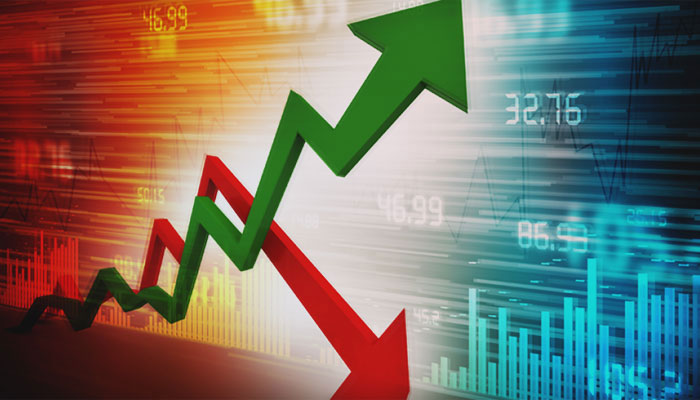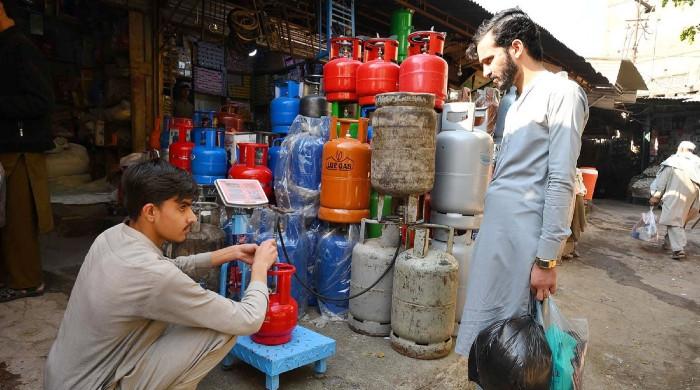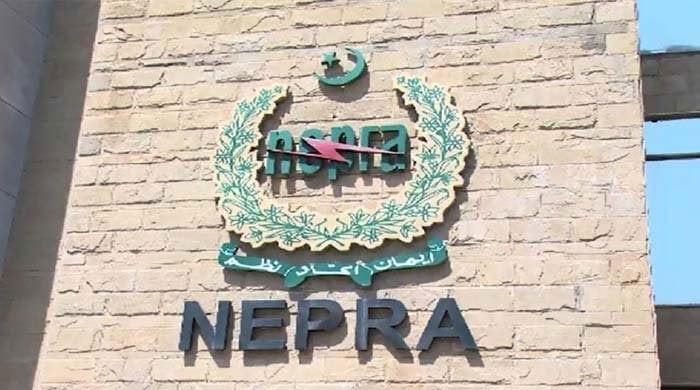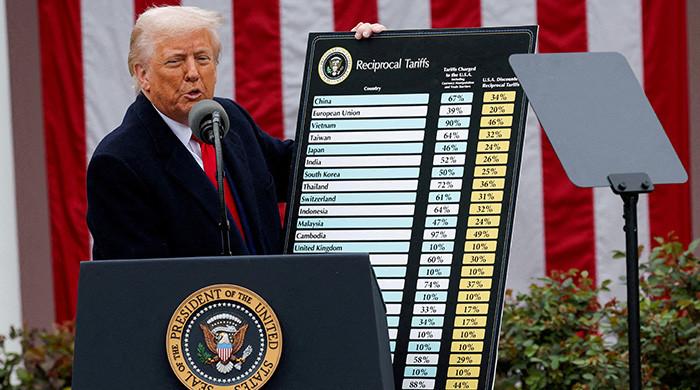May inflation posts largest drop in 11 months amid coronavirus disruptions
PBS data showed CPI inflation urban increased 7.3% year-on-year basis in May due to coronavirus
June 02, 2020

KARACHI: Consumer inflation fell to an 11-month low of 8.2% in May when oil prices tumbled and the coronavirus lockdown suppressed demand for some goods and services, offsetting seasonal food prices hike in Ramadan, official data showed on Monday.
Data by the Pakistan Bureau of Statistics (PBS) showed that consumer inflation was recorded at 8.4% in May last year. On a month-on-month basis, it increased by 0.3% in May, compared to a decrease of 0.8% in the previous month and an increase of 0.6% in May last year.
In May, prices of onions declined 23.35% month-on-month, followed by vegetables (19.62%), eggs (18.74%), motor fuel (13.43%), tomatoes (7.74%), pulse gram (7.25%), pulse masoor (4.43%), besan (4.38%), liquefied hydrocarbons (4.12%), and wheat (3.37%).
However, prices of chickens increased 41.46%, followed by potatoes (31.19%), fruits (9.72%), milk (4.63%), cotton cloth (4.04%), condiments and spices (3.71%) and butter (2.58%), tailoring (2.53%), motor vehicle accessories (1.51%) and construction input items (0.38%).
Consumer inflation was recorded at 8% in June last year before moving up to 8.4% in the following month, according to PBS. The lower inflation was in contrast to the market expectation of the reading on the higher side due to the seasonal effect.
Analyst Noman Ahmed at Insight Securities said major reasons for the surge in inflation could be higher food prices due to Ramadan and Eid factors. “We have noted that this time artificial rise in food prices was on the lower end, which is contrary to what was traditionally observed during the season,” he said.
Consumption was adversely upset during more than two months of lockdown after the coronavirus outbreak. Average inflation for the July-May period came at 10.94%, much higher than 6.69% in the corresponding period a year earlier and 4.6% in July-May 2017/18.
“We expect average inflation for FY20 to reach 10.83%, while, average CPI (consumer price index) for the next 12 months is expected to remain at 7-6.5% (assuming crude oil at $40/barrel),” said Ahmed. “We have deferred uptick in housing and education index till July-20. However, a further increase in taxes in the upcoming budget remains a key risk to our estimates. We expect CPI to remain lower in near-term due to muted crude oil recovery, ample food supply along with subsidies announced by the federal government to farmers on fertilisers/tractor during the summer season.”
Considering the downward inflation and lockdown-sparked slowdown, the central bank has already reduced the policy rate by 525 basis points to 8%, “which is roughly 150 basis points above from the expected fall in CPI on forward-looking basis”.
“Therefore, we do not expect a further emergency cut in near-term,” said Ahmed.
“However, SBP may provide relief if aggregate demand/growth falls below from expectation.”
PBS data further showed that CPI inflation urban increased 7.3% year-on-year basis in May, compared to an increase of 7.7% in the previous month and 8.5% in May 2019. On a month-on-month basis, it increased by 0.3% in May, compared to a decrease of 0.7% in the previous month and an increase of 0.7% in May last year.
CPI inflation rural increased by 9.7% year-on-year in May, compared to an increase of 9.8% in the previous month and 8.3% in May last year. On a month-on-month basis, it increased by 0.3% in May, compared to a decrease of 1.1% in the previous month and an increase of 0.5% in May last year.
Wholesale price index (WPI) inflation increased by 1.5% year-on-year in May, compared to an increase of 4.9% a month earlier and an increase of 16.5% in May last year. WPI inflation decreased by 2.1% month-on-month in May, compared to a decrease of 2% a month earlier and an increase of 1.2% in the corresponding month of last year.
Originally published in The News











